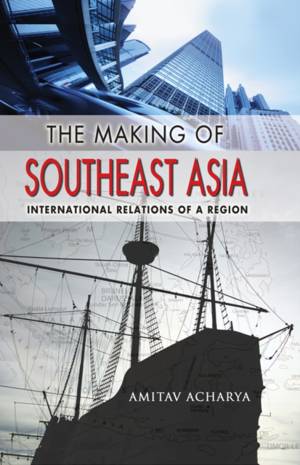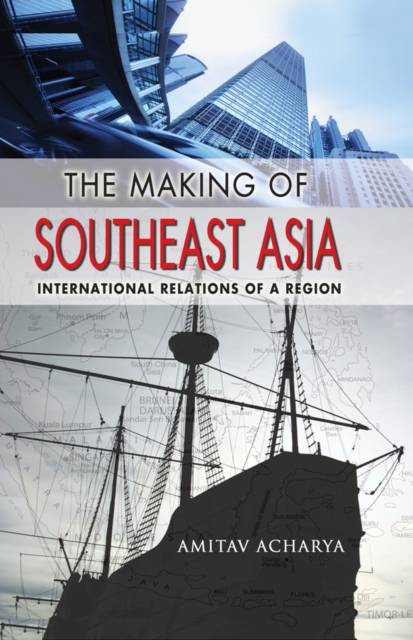
- Afhalen na 1 uur in een winkel met voorraad
- Gratis thuislevering in België vanaf € 30
- Ruim aanbod met 7 miljoen producten
- Afhalen na 1 uur in een winkel met voorraad
- Gratis thuislevering in België vanaf € 30
- Ruim aanbod met 7 miljoen producten
Omschrijving
Developing a framework to study "what makes a region," Amitav Acharya investigates the origins and evolution of Southeast Asian regionalism and international relations. He views the Association of Southeast Asian Nations (ASEAN) "from the bottom up" as not only a U.S.-inspired ally in the Cold War struggle against communism but also an organization that reflects indigenous traditions. Although Acharya deploys the notion of "imagined community" to examine the changes, especially since the Cold War, in the significance of ASEAN dealings for a regional identity, he insists that "imagination" is itself not a neutral but rather a culturally variable concept. The regional imagination in Southeast Asia imagines a community of nations different from NAFTA or NATO, the OAU, or the European Union.
In this new edition of a book first published as The Quest for Identity in 2000, Acharya updates developments in the region through the first decade of the new century: the aftermath of the financial crisis of 1997, security affairs after September 2001, the long-term impact of the 2004 tsunami, and the substantial changes wrought by the rise of China as a regional and global actor. Acharya argues in this important book for the crucial importance of regionalism in a different part of the world.
Specificaties
Betrokkenen
- Auteur(s):
- Uitgeverij:
Inhoud
- Aantal bladzijden:
- 408
- Taal:
- Engels
Eigenschappen
- Productcode (EAN):
- 9780801477362
- Verschijningsdatum:
- 15/03/2013
- Uitvoering:
- Paperback
- Formaat:
- Trade paperback (VS)
- Afmetingen:
- 150 mm x 229 mm
- Gewicht:
- 544 g

Alleen bij Standaard Boekhandel
Beoordelingen
We publiceren alleen reviews die voldoen aan de voorwaarden voor reviews. Bekijk onze voorwaarden voor reviews.











